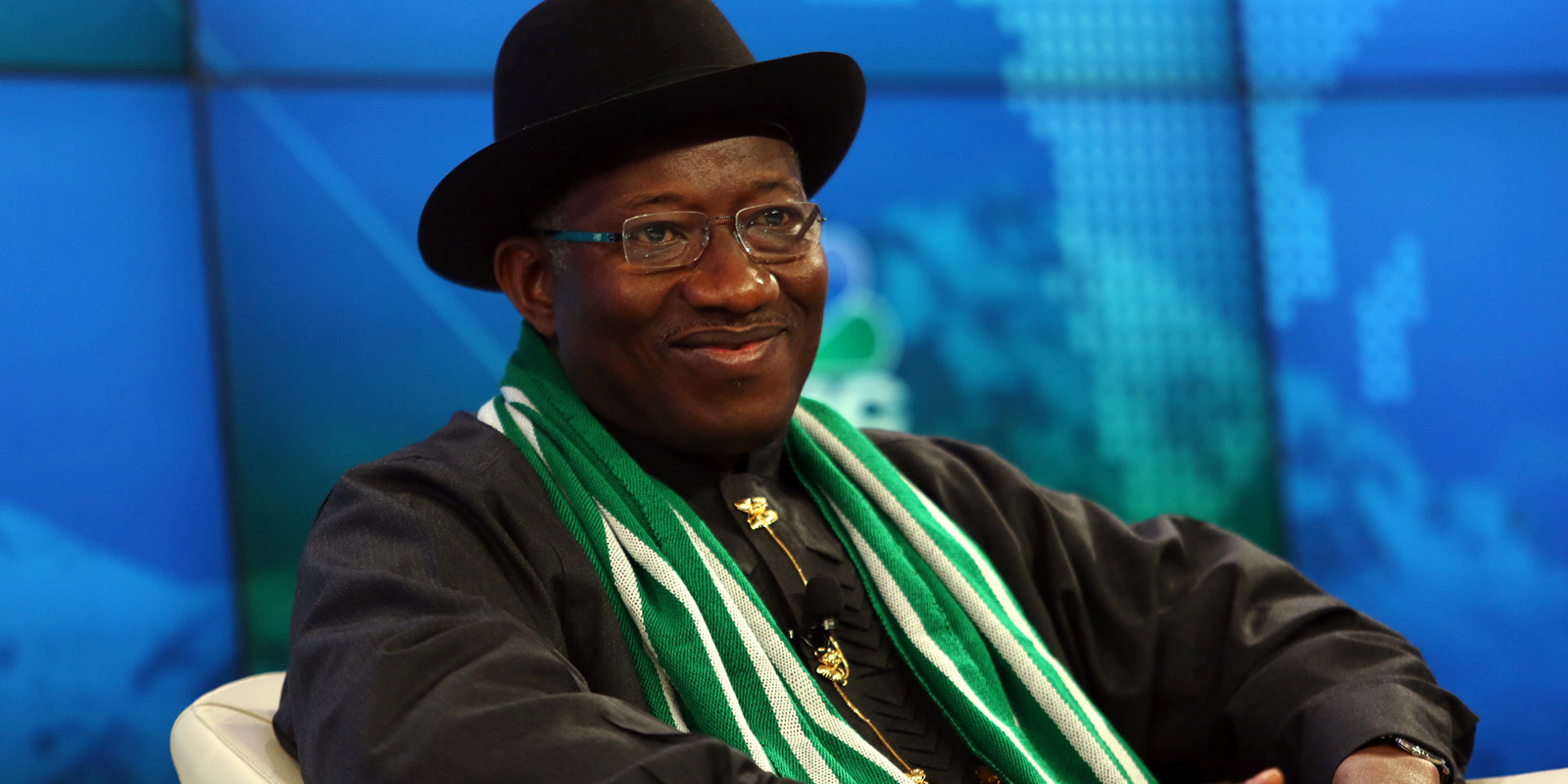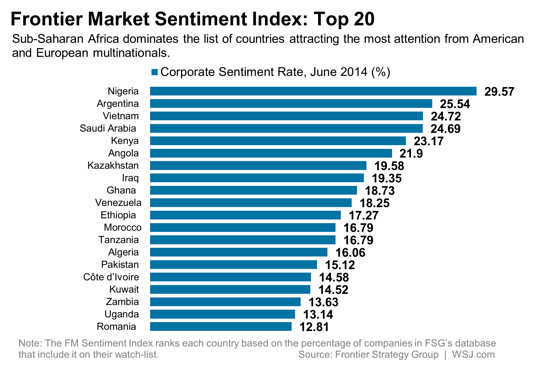Regardless of the several ill-news emanating from Nigeria, not everything is all gloomy about the most populous black nation on the surface of the earth.
Only recently, Nigeria was named as the biggest economy in Africa ahead of significantly developed countries like South Africa and Egypt. News which had the country grinning from ear to ear with pride.
To add another feather to Nigeria’s cap, a survey conducted recently has proven that Nigeria has the largest market for multinational companies. According to the survey, Nigeria is closely followed by Argentina and Vietnam.
WSJ reports:
Fresh from its coronation as the biggest economy in Africa, Nigeria has scored another first. The troubled West African country has emerged as the frontier-market economy that is attracting the most attention from American and European multinationals.
Nigeria is joined by Argentina and Vietnam as the frontier markets that multinational corporations are most interested in, according to a new index of corporate sentiment.
The Frontier Markets Sentiment Index, created exclusively for the Wall Street Journal by Washington DC-based advisory firm Frontier Strategy Group, tracks the level of interest shown by major European and American multinational companies in countries across the frontier markets world.
The index is a based on information collected from FSG’s roughly 200 multinational clients, which include companies such as Coca-Cola KO +0.72%, General Electric GE -0.81%, Novartis NOVN.VX +0.62%, Dell and Akzo Nobel AKZOY +1.06%. Matt Lasov, FSG’s global head of advisory and analytics, explains how the index works: “We collect data about which countries the companies are watching for potential future investment. Over time, that gives us a clear picture of their market priorities—which countries are they including in their future plans and which they are dropping.”
The research provides two key insights: the current state of sentiment toward countries in the frontier markets, and the change in sentiment over time. Corporate sentiment is calculated as the percentage of companies that include a particular country on their watch-list. If 50 of the 200 companies are keeping an eye on a particular country, the sentiment index score would be 25%.
The data point to some striking regional differences. Of the 20 countries attracting most interest from multinationals, nine are in sub-Saharan Africa. Few will be surprised to see Kenya and Nigeria among the top tier, but Ethiopia and Tanzania making it onto the list as the 12th- and 13th-most watched countries respectively might cause a few raised eyebrows.
One person who won’t be surprised to see growing interest among multinationals for investing in Ethiopia is Alexander Benard, chief operating officer of Schulze Global, a private equity firm. “We are very excited about Ethiopia,” Benard says. “We believe it has huge potential.”
Schulze Global is so excited about the prospects for Ethiopia that the firm has set up a $100 million fund specifically to invest there.
Other regions are less well-represented among the top 20. While Southeast Asian economic powerhouse Vietnam is among the top three countries, Asia accounts for just three frontier markets in the top 20.
The same is true for the Middle East, with only Saudi Arabia, Iraq and Kuwait representing the region in the top 20. Latin America contributes just two countries—Argentina and Venezuela—to the top 20. However, despite the country’s recent travails, Argentina is still generating considerable interest among multinationals, with one in four including it in their watch list.
The corporate world’s fascination with Africa shows through clearly in the rates of change of sentiment, too. The data compare an average of corporate sentiment for year-to-date 2014 with an average of the results over the full-year 2013.
Four of the five countries with the highest positive change in sentiment are in sub-Saharan Africa, as well as seven of the top 10.
Pakistan, though, is ahead of the pack in terms of the number of companies newly taking an interest in it. Sentiment toward the South Asian nation of 183 million people improved by 5.6 percentage points, putting it ahead of Africa’s rising stars Nigeria and Kenya, which each saw sentiment improve by just over four percentage points








